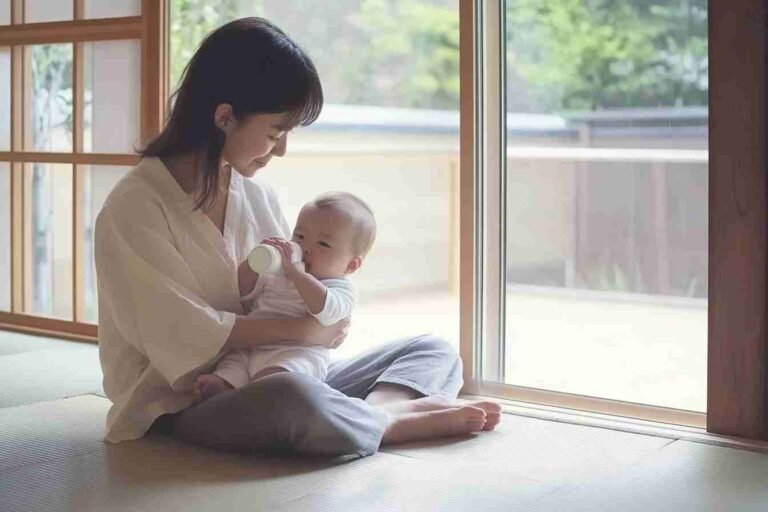Can I Babysit a Newborn Without Prior Experience? Tips for Beginners
Thinking about saying yes to your first newborn babysitting job—but feeling unsure? You’re not alone. Many people wonder, “Can I really babysit a newborn without any experience?” The idea of caring for a tiny, fragile baby can be intimidating, especially if you’ve never held one before 🫣
But here’s the good news: it is absolutely possible to babysit a newborn safely, even without a background in childcare. With the right mindset, basic skills, and some beginner tips, you can support new parents and feel confident while doing it. Everyone starts somewhere, and many experienced nannies and babysitters began just like you—nervous but willing to learn 👶✨
This blog is here to help you take your first steps into newborn care. Whether you’re helping a family member, working part-time, or just starting out, you’ll find simple advice on how to babysit a newborn, respond calmly to crying, handle feeding and diaper changes, and stay prepared throughout the day or night. You don’t need to be perfect—just patient, gentle, and alert 💛
Table of Contents
Is It Safe to Babysit a Newborn With No Experience?
Yes, you can babysit a newborn even without prior experience—as long as you’re prepared, responsible, and willing to learn. Many first-time caregivers start just like you: a little nervous, but with a big heart and a desire to do things right 👶💛
Newborns need constant care and attention, but you don’t have to be a professional to support them safely. What really matters is staying calm, being gentle, and always putting the baby’s safety first. If you’re unsure about anything, don’t guess—ask the parents for clear instructions or write down what you need to remember.
Before you begin, make sure you know a few basics, such as how to hold a newborn, how to change a diaper, how to recognize signs of hunger or tiredness, and what to do in case of a small emergency (like spit-up or a mild rash). These are all things you’ll learn in the next sections of this guide.
So yes—it’s safe to babysit a newborn without experience, as long as you’re prepared to be careful, patient, and always ask questions when in doubt 🧸✨
What You Must Know Before Babysitting a Newborn
Before you babysit a newborn, it’s good to know a few basics:
Newborns cry a lot — it’s their way of asking for help. Stay calm and check if they need a diaper change, feeding, or just comfort.
Feeding and changing are frequent — expect a bottle every 2–3 hours and lots of diaper changes.
Their head needs support — always hold the head and neck gently when lifting or carrying.Never leave them alone — especially on beds, sofas, or changing tables.
You don’t need experience to babysit a newborn—you just need care, attention, and patience 💛
Holding a Newborn: Gentle Techniques for First-Timers
One of the most important skills when you babysit a newborn is knowing how to hold them safely. Newborns don’t have strong neck muscles yet, so you need to support their head every time you pick them up or carry them 👐👶
Here’s how to do it:
Always support the head and neck. Use one hand under the head, and the other under their bottom.
Hold them close to your chest. This makes the baby feel secure and helps you keep steady.
Be gentle and calm. Move slowly, avoid sudden movements, and always use both hands.
If sitting, use a pillow. A soft pillow on your lap can make holding more comfortable for longer periods.
With just a little practice, holding a newborn will feel more natural. And remember: confidence comes with care—not speed 💛
How to Change a Diaper Without Stress
Changing diapers is part of the job when you babysit a newborn, and while it might seem tricky at first, it gets easier with a little practice 🧷🧼
Here’s a quick step-by-step to keep things simple:
- Gather supplies first – clean diaper, wipes, cream (if needed), and a changing mat.
- Lay the baby down safely – never leave them unattended, even for a second.
- Wipe gently from front to back – this prevents infection, especially for baby girls.
- Use a clean diaper under the baby before removing the dirty one—it helps catch surprises!
- Secure the diaper snugly but not too tight.
Always wash your hands after changing, and speak gently to the baby while you do it. Staying calm helps both of you feel more at ease 💛👶
Feeding Basics When You Babysit a Newborn
Feeding is a big part of caring when you babysit a newborn. Whether it’s breast milk or formula, newborns usually eat every 2–3 hours—and it’s important to feed them the right way 🍼👶
Here’s what you need to know:
Follow the parents’ instructions. Ask how much to give, how often, and what to use (bottle, warmed milk, etc.).
Hold the baby upright during and after feeding to help prevent choking and gas.
Burp the baby gently by patting or rubbing their back after each feeding.
Watch for signs of hunger like sucking fingers, turning their head, or fussing.
Never force-feed or lay the baby flat while feeding. Staying calm and gentle will help the baby feel secure—and help you feel more confident too 💛
Understanding Newborn Sleep and Soothing Methods
When you babysit a newborn, don’t expect long naps or a perfect schedule. Newborns sleep a lot—but in short bursts—and often wake up needing food, a diaper change, or comfort 😴🍼
Here’s how you can help:
Watch for sleepy signs like yawning, rubbing eyes, or fussiness.
Lay the baby on their back in a safe, flat sleeping area with no pillows or toys.
Try gentle soothing like rocking, swaddling, or using white noise.
Stay calm if they won’t sleep right away. Some babies need more time or comfort before drifting off.
The key is patience. Every baby is different, and your calm energy can help them settle more easily 💛🧸
What to Do When the Baby Won’t Stop Crying
One of the hardest moments when you babysit a newborn is when the baby keeps crying—and you’re not sure why 😥
Don’t panic. Crying is normal and doesn’t mean you’re doing something wrong. Try these steps:
Check the basics first: Is the baby hungry, wet, gassy, or tired?
Hold the baby close and walk gently or rock them softly.
Try a soothing sound like humming, soft music, or a white noise app.
Offer a pacifier if the parents allow it—it can help calm them quickly.
Stay calm. Your mood affects the baby. Take deep breaths and move slowly.
If the crying lasts too long or feels unusual, contact the parents right away. It’s okay to ask for help. Being calm and careful is the most important thing you can do 💛👶
Safety Tips Every Newborn Babysitter Should Know
When you babysit a newborn, safety always comes first. Newborns are delicate and need constant care and attention—even during simple tasks like feeding or sleeping 🛡️👶
Keep these safety tips in mind:
Never leave the baby alone on a bed, sofa, or changing table—not even for a second.
Always support the head and neck when lifting or holding the baby.
Lay the baby flat on their back to sleep, with no pillows, toys, or blankets in the crib.
Keep small objects, cords, and hot drinks out of reach while holding the baby.
Follow the parents’ instructions carefully, especially for feeding and medication (if any).
Staying alert and focused helps keep the baby safe—and gives parents peace of mind while you babysit 💛✅
FAQs About Babysitting a Newborn as a Beginner
Q1: Can I babysit a newborn without formal training?
A: Yes! You just need to be gentle, alert, and follow the parents’ instructions. 👶📝
Q2: What if I forget something while babysitting?
A: Stay calm. Keep a checklist and don’t hesitate to contact the parents if you’re unsure. 📱✅
Q3: How long should a newborn sleep?
A: Newborns usually sleep 14–17 hours a day—but in short naps, not all at once. 😴
Q4: Is it normal for a baby to cry even after being fed and changed?
A: Yes. Sometimes they just need comfort, holding, or rest. Crying is their way of communicating. 🤱
Q5: How do I build confidence as a beginner babysitter?
A: Start small, ask questions, and learn by doing. Each time you babysit a newborn, you’ll feel more prepared. 💛



